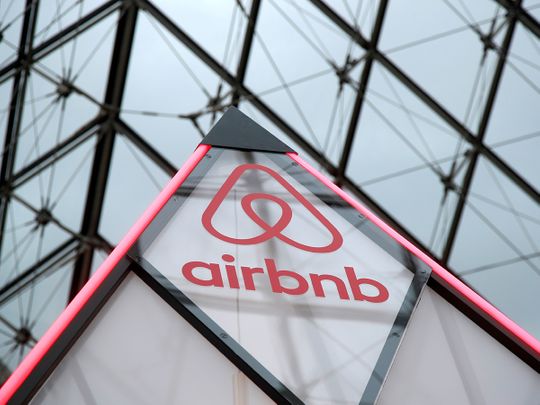New York City’s recent ban on short-term rentals has left many tourists seeking accommodation on platforms like Airbnb and VRBO with limited options. The law, which went into effect this week, prohibits rentals for less than 30 days, effectively removing a significant portion of the city’s 36,000 short-term tourist apartments from the rental market.
The new legislation only allows room rentals when the landlord resides in the apartment and is present throughout the guest’s stay. Additionally, no more than two visitors are permitted at a time, and they are not allowed to lock their room doors. Hosts must register with the mayor’s office and pay a $145 fee every two years, although permits are being granted sparingly. Of the over 3,800 applications received, less than 300 have been approved. Violators of the law can face fines ranging from $1,000 to $7,500, but guests themselves are not affected.
While property owners and platforms like Airbnb are vehemently opposed to the new law, many city residents support its implementation as a means to alleviate the housing shortage. Some argue that bringing short-term rentals back into the long-term market will help ease the unaffordability crisis in New York. Marianne LeNabat, a 44-year-old resident, believes the measure is necessary, stating, “I don’t think a solution is ever just introducing more housing stock, but certainly taking tons and tons of units off the market is a problem.”
The mayor’s office justifies the ban by citing concerns about illegal practices, including noise, litter, and personal safety issues for permanent residents. The Office of Special Enforcement, responsible for enforcing the ordinance passed in January 2022, emphasizes that many residential buildings lack adequate security personnel to handle the influx of travelers.
Airbnb, the primary target of the new law, strongly opposes the measure, claiming it sends a message that potential visitors are not welcome in the city. The company argues that the ordinance will exacerbate the chronic housing shortage in New York and create a larger crisis than it intends to solve. Organizations such as RHOAR, which represents small landlords with up to two homes, argue that eliminating short-term rentals will jeopardize their ability to cover mortgages and pose financial and personal risks.
Tricia T., a homeowner who used to offer short-term rentals in Brooklyn, expresses concerns about losing an average of $3,000 per month in rental income. The uncertainty surrounding the permanence of the new law leaves many waiting to see what comes next.
Critics of the ban, including former Airbnb clients, warn that it may result in increased hotel prices and deter less affluent travelers from visiting the city. They argue that there are many young people who cannot afford hotel rates and will be unable to pay exorbitant prices. According to a report prepared for Airbnb by Boston University professor Michael Salinger, the new regulations are not economically justified and will not effectively address the city’s long-term housing shortage.
New York City’s ban on short-term rentals follows similar regulations in cities like San Francisco, where short-term rentals are limited to a maximum of 90 days per year. Critics believe that the new law will have a detrimental impact on the city’s tourism economy and the livelihoods of thousands of New Yorkers and small businesses that rely on home sharing and tourism income.

I have over 10 years of experience in the field of cryptocurrency and blockchain technology. I have attended numerous conferences and events around the world, and my work has been featured in major publications such as CoinDesk, Bitcoin Magazine, and Yahoo Finance.

